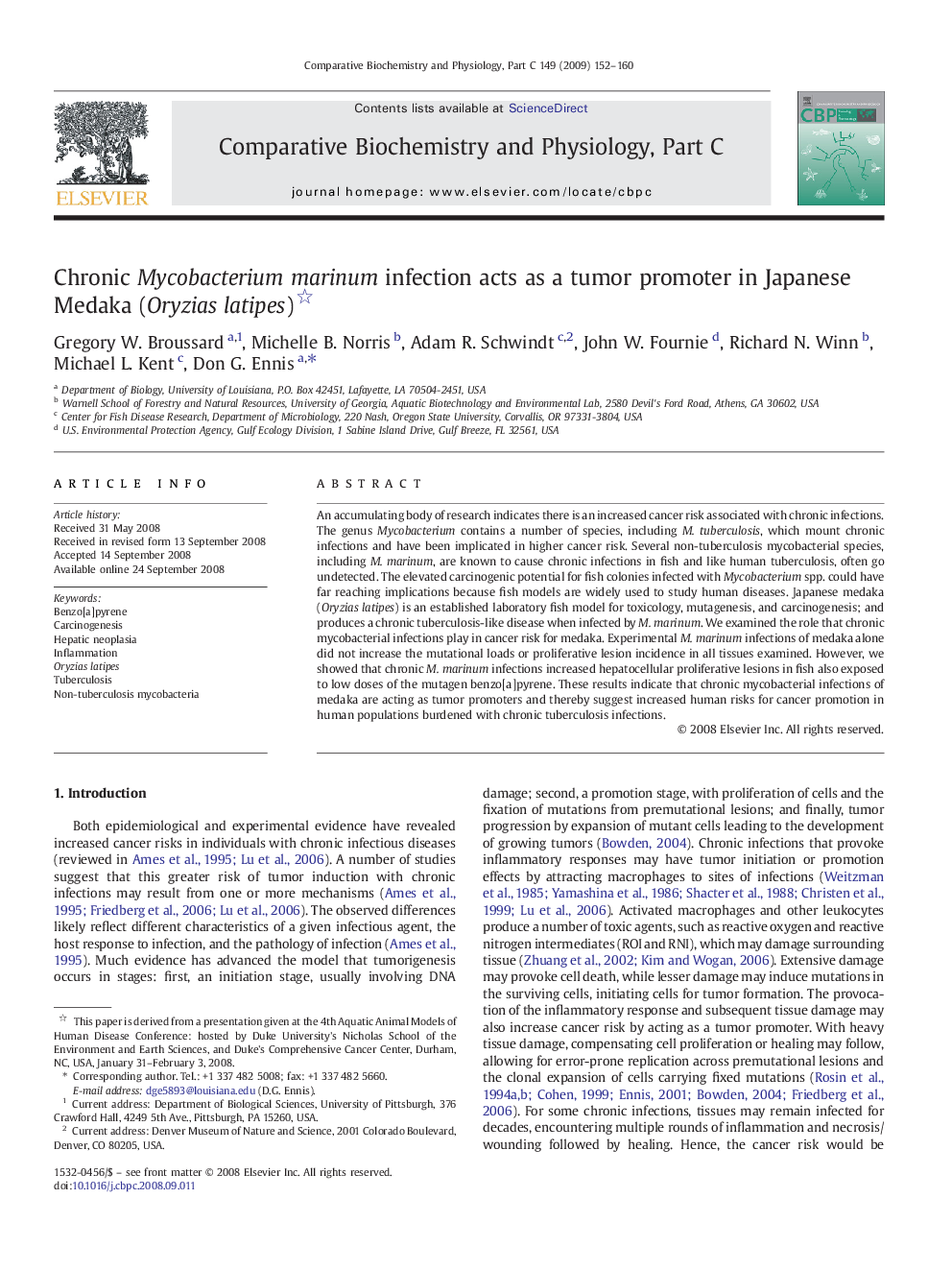| Article ID | Journal | Published Year | Pages | File Type |
|---|---|---|---|---|
| 1977508 | Comparative Biochemistry and Physiology Part C: Toxicology & Pharmacology | 2009 | 9 Pages |
Abstract
An accumulating body of research indicates there is an increased cancer risk associated with chronic infections. The genus Mycobacterium contains a number of species, including M. tuberculosis, which mount chronic infections and have been implicated in higher cancer risk. Several non-tuberculosis mycobacterial species, including M. marinum, are known to cause chronic infections in fish and like human tuberculosis, often go undetected. The elevated carcinogenic potential for fish colonies infected with Mycobacterium spp. could have far reaching implications because fish models are widely used to study human diseases. Japanese medaka (Oryzias latipes) is an established laboratory fish model for toxicology, mutagenesis, and carcinogenesis; and produces a chronic tuberculosis-like disease when infected by M. marinum. We examined the role that chronic mycobacterial infections play in cancer risk for medaka. Experimental M. marinum infections of medaka alone did not increase the mutational loads or proliferative lesion incidence in all tissues examined. However, we showed that chronic M. marinum infections increased hepatocellular proliferative lesions in fish also exposed to low doses of the mutagen benzo[a]pyrene. These results indicate that chronic mycobacterial infections of medaka are acting as tumor promoters and thereby suggest increased human risks for cancer promotion in human populations burdened with chronic tuberculosis infections.
Keywords
Related Topics
Life Sciences
Biochemistry, Genetics and Molecular Biology
Biochemistry
Authors
Gregory W. Broussard, Michelle B. Norris, Adam R. Schwindt, John W. Fournie, Richard N. Winn, Michael L. Kent, Don G. Ennis,
